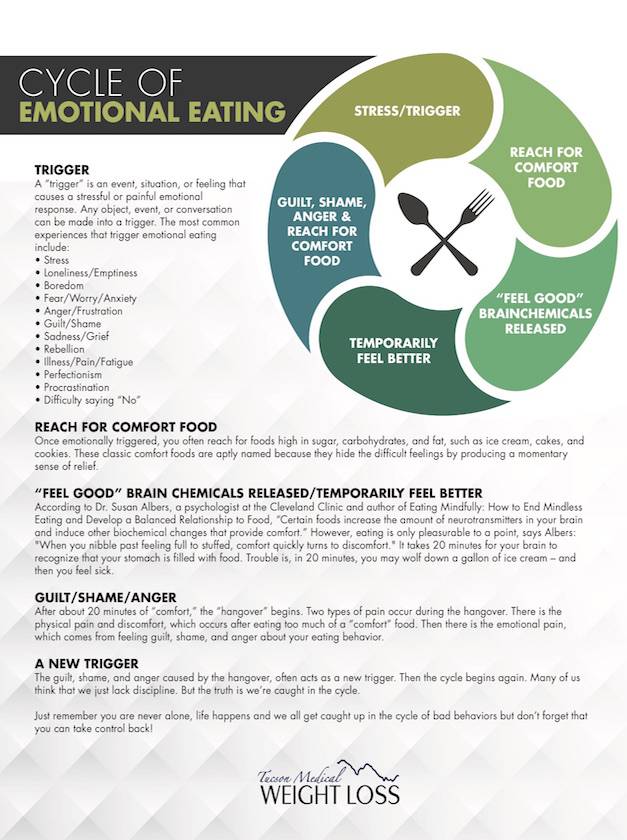Written by: Clinical Psychologist, Dr. Kim Feinstein, RedMountain Weight Loss’ Behavioral Weight Loss Specialist
1. Stress
Stress is the number one reason people give for why they engage in emotional eating. Stress causes people to want to eat for several reasons. One powerful reason is stress can bring on increased levels of cortisol. Cortisol has a beneficial function in the body, but excessive levels of cortisol brought on by chronic stress can create cravings for salty and sweet foods. In previous centuries, this enabled people to bulk up on foods that would sustain them during times when food is scarce; however, in modern times and industrialized nations, when food is rarely scarce, this previously adaptive mechanism causes excess weight gain and significant uncontrollable cravings.
2. Negative AND Positive Emotions
One of the biggest myths about emotional eating is that it is ONLY prompted by negative feelings. Yes, people often turn to food when they’re overwhelmed, lonely, sad, angry, anxious, and/or bored. However, emotional eating can also be driven by positive feelings, like happiness, excitement, and/or joy.
Occasionally, emotional eating is prompted by tragic life events, such as a death or a divorce. More often, though, it is the countless daily stressors that cause someone to seek comfort or distraction in food. Eating can be a way to temporarilysilence or “stuff” uncomfortable feelings. While you are numbing yourself with food, you avoid the emotions you would rather not feel.
3. Childhood habits:
Emotional eating patterns can be learned: A child who is given candy after a big achievement may grow up using candy as a reward for a job well done. A kid who is given cookies as a way to stop crying may learn to link cookies with comfort.
Reflect on your childhood experiences surrounding food. Did your parents reward good behavior with sweets, take you out for fast food when you got a good report card, or give you a cookie or ice cream when you were feeling sad? These childhood eating habits often carry over into adulthood and are presently operating today.
Emotional eating is a vicious cycle. Food is used to deal with an emotion, but the food doesn’t answer your emotional needs, and then you are left feeling guilty or shameful, adding to your emotional instability. Let’s further examine the cycle of emotional eating.


















